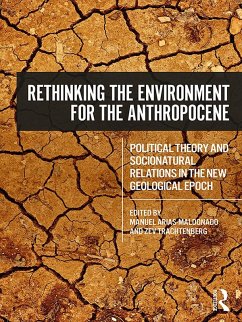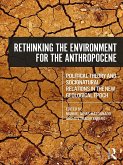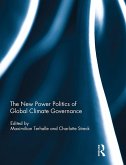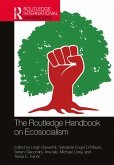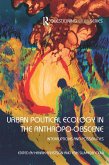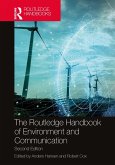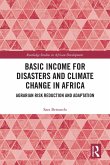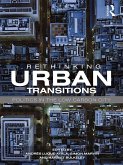Rethinking the Environment for the Anthropocene (eBook, PDF)
Political Theory and Socionatural Relations in the New Geological Epoch
Redaktion: Arias-Maldonado, Manuel; Trachtenberg, Zev
40,95 €
40,95 €
inkl. MwSt.
Sofort per Download lieferbar

20 °P sammeln
40,95 €
Als Download kaufen

40,95 €
inkl. MwSt.
Sofort per Download lieferbar

20 °P sammeln
Jetzt verschenken
Alle Infos zum eBook verschenken
40,95 €
inkl. MwSt.
Sofort per Download lieferbar
Alle Infos zum eBook verschenken

20 °P sammeln
Rethinking the Environment for the Anthropocene (eBook, PDF)
Political Theory and Socionatural Relations in the New Geological Epoch
Redaktion: Arias-Maldonado, Manuel; Trachtenberg, Zev
- Format: PDF
- Merkliste
- Auf die Merkliste
- Bewerten Bewerten
- Teilen
- Produkt teilen
- Produkterinnerung
- Produkterinnerung

Bitte loggen Sie sich zunächst in Ihr Kundenkonto ein oder registrieren Sie sich bei
bücher.de, um das eBook-Abo tolino select nutzen zu können.
Hier können Sie sich einloggen
Hier können Sie sich einloggen
Sie sind bereits eingeloggt. Klicken Sie auf 2. tolino select Abo, um fortzufahren.

Bitte loggen Sie sich zunächst in Ihr Kundenkonto ein oder registrieren Sie sich bei bücher.de, um das eBook-Abo tolino select nutzen zu können.
This book brings together the most current thinking about the Anthropocene in the field of Environmental Political Theory ("EPT"). It displays the distinctive contribution EPT makes to the task of thinking through what "the environment" means in this time of pervasive human influence over natural systems.
- Geräte: PC
- mit Kopierschutz
- eBook Hilfe
- Größe: 7.32MB
Andere Kunden interessierten sich auch für
![Rethinking the Environment for the Anthropocene (eBook, ePUB) Rethinking the Environment for the Anthropocene (eBook, ePUB)]() Rethinking the Environment for the Anthropocene (eBook, ePUB)40,95 €
Rethinking the Environment for the Anthropocene (eBook, ePUB)40,95 €![The New Power Politics of Global Climate Governance (eBook, PDF) The New Power Politics of Global Climate Governance (eBook, PDF)]() The New Power Politics of Global Climate Governance (eBook, PDF)46,95 €
The New Power Politics of Global Climate Governance (eBook, PDF)46,95 €![The Routledge Handbook on Ecosocialism (eBook, PDF) The Routledge Handbook on Ecosocialism (eBook, PDF)]() The Routledge Handbook on Ecosocialism (eBook, PDF)46,95 €
The Routledge Handbook on Ecosocialism (eBook, PDF)46,95 €![Urban Political Ecology in the Anthropo-obscene (eBook, PDF) Urban Political Ecology in the Anthropo-obscene (eBook, PDF)]() Urban Political Ecology in the Anthropo-obscene (eBook, PDF)40,95 €
Urban Political Ecology in the Anthropo-obscene (eBook, PDF)40,95 €![The Routledge Handbook of Environment and Communication (eBook, PDF) The Routledge Handbook of Environment and Communication (eBook, PDF)]() The Routledge Handbook of Environment and Communication (eBook, PDF)47,95 €
The Routledge Handbook of Environment and Communication (eBook, PDF)47,95 €![Basic Income for Disasters and Climate Change in Africa (eBook, PDF) Basic Income for Disasters and Climate Change in Africa (eBook, PDF)]() Sara BernardoBasic Income for Disasters and Climate Change in Africa (eBook, PDF)42,95 €
Sara BernardoBasic Income for Disasters and Climate Change in Africa (eBook, PDF)42,95 €![Rethinking Urban Transitions (eBook, PDF) Rethinking Urban Transitions (eBook, PDF)]() Rethinking Urban Transitions (eBook, PDF)40,95 €
Rethinking Urban Transitions (eBook, PDF)40,95 €-
-
-
This book brings together the most current thinking about the Anthropocene in the field of Environmental Political Theory ("EPT"). It displays the distinctive contribution EPT makes to the task of thinking through what "the environment" means in this time of pervasive human influence over natural systems.
Dieser Download kann aus rechtlichen Gründen nur mit Rechnungsadresse in A, B, BG, CY, CZ, D, DK, EW, E, FIN, F, GR, HR, H, IRL, I, LT, L, LR, M, NL, PL, P, R, S, SLO, SK ausgeliefert werden.
Produktdetails
- Produktdetails
- Verlag: Taylor & Francis eBooks
- Seitenzahl: 234
- Erscheinungstermin: 15. Januar 2019
- Englisch
- ISBN-13: 9781351400596
- Artikelnr.: 56841353
- Verlag: Taylor & Francis eBooks
- Seitenzahl: 234
- Erscheinungstermin: 15. Januar 2019
- Englisch
- ISBN-13: 9781351400596
- Artikelnr.: 56841353
- Herstellerkennzeichnung Die Herstellerinformationen sind derzeit nicht verfügbar.
Manuel Arias-Maldonado is Associate Professor of Political Science at the University of Málaga, Spain. His research has revolved around different aspects of Environmental Political Theory, mostly the relationship between sustainability and democracy, the philosophical and political character of socionatural relations, the concept of nature, and, as of late, the Anthropocene. Zev Trachtenberg is a Professor of Philosophy at the University of Oklahoma, USA. His work in Environmental Political Theory focuses on ways historical works prefigure thinking about the Anthropocene. He is also interested in the relevance to the field of new developments in the study of human evolution.
Introduction Manuel Arias-Maldonado and Zev Trachtenberg Part I:
Understanding nature in the Anthropocene. 1. The return of nature in the
Capitalocene: a critique of the ecomodernist version of the 'good
Anthropocene' Anne Fremaux 2. Emancipation, capture, and rescue? On the
ontological turn and its critique Luigi Pellizzoni 3. Novel ecosystems and
the return of nature in the Anthropocene Susan Baker Part II: Environmental
political theory and the Anthropocene. 4. Vocations of (environmental)
political theory in the Anthropocene John M. Meyer 5. The ecological
circumstances of politics Zev Trachtenberg 6. What cities can teach us
about environmental political theory in the Anthropocene Nir Barak Part
III: The Anthropocene as a moral question. 7. Anthropocene: the emergence
of the figure of "Governator" Yohan Ariffin 8. Real Anthropocene politics
Simon Hailwood 9. Towards a good Anthropocene? Manuel Arias-Maldonado Part
IV: Democratic responses to the Anthropocene. 10. Geo-engineering: a curse
or a blessing? Marcel Wissenburg 11. Sustainability governance in a
democratic Anthropocene: the arts as key to deliberative citizen engagement
Marit Hammond and Hugh Ward 12. Critical design, hybrid labor, just
transitions: moving beyond technocratic ecomodernisms and the
it's-too-late-o-cene Damian White Afterword: the Anthropocene or welcome to
our fluxed futures John Barry
Understanding nature in the Anthropocene. 1. The return of nature in the
Capitalocene: a critique of the ecomodernist version of the 'good
Anthropocene' Anne Fremaux 2. Emancipation, capture, and rescue? On the
ontological turn and its critique Luigi Pellizzoni 3. Novel ecosystems and
the return of nature in the Anthropocene Susan Baker Part II: Environmental
political theory and the Anthropocene. 4. Vocations of (environmental)
political theory in the Anthropocene John M. Meyer 5. The ecological
circumstances of politics Zev Trachtenberg 6. What cities can teach us
about environmental political theory in the Anthropocene Nir Barak Part
III: The Anthropocene as a moral question. 7. Anthropocene: the emergence
of the figure of "Governator" Yohan Ariffin 8. Real Anthropocene politics
Simon Hailwood 9. Towards a good Anthropocene? Manuel Arias-Maldonado Part
IV: Democratic responses to the Anthropocene. 10. Geo-engineering: a curse
or a blessing? Marcel Wissenburg 11. Sustainability governance in a
democratic Anthropocene: the arts as key to deliberative citizen engagement
Marit Hammond and Hugh Ward 12. Critical design, hybrid labor, just
transitions: moving beyond technocratic ecomodernisms and the
it's-too-late-o-cene Damian White Afterword: the Anthropocene or welcome to
our fluxed futures John Barry
Introduction Manuel Arias-Maldonado and Zev Trachtenberg Part I:
Understanding nature in the Anthropocene. 1. The return of nature in the
Capitalocene: a critique of the ecomodernist version of the 'good
Anthropocene' Anne Fremaux 2. Emancipation, capture, and rescue? On the
ontological turn and its critique Luigi Pellizzoni 3. Novel ecosystems and
the return of nature in the Anthropocene Susan Baker Part II: Environmental
political theory and the Anthropocene. 4. Vocations of (environmental)
political theory in the Anthropocene John M. Meyer 5. The ecological
circumstances of politics Zev Trachtenberg 6. What cities can teach us
about environmental political theory in the Anthropocene Nir Barak Part
III: The Anthropocene as a moral question. 7. Anthropocene: the emergence
of the figure of "Governator" Yohan Ariffin 8. Real Anthropocene politics
Simon Hailwood 9. Towards a good Anthropocene? Manuel Arias-Maldonado Part
IV: Democratic responses to the Anthropocene. 10. Geo-engineering: a curse
or a blessing? Marcel Wissenburg 11. Sustainability governance in a
democratic Anthropocene: the arts as key to deliberative citizen engagement
Marit Hammond and Hugh Ward 12. Critical design, hybrid labor, just
transitions: moving beyond technocratic ecomodernisms and the
it's-too-late-o-cene Damian White Afterword: the Anthropocene or welcome to
our fluxed futures John Barry
Understanding nature in the Anthropocene. 1. The return of nature in the
Capitalocene: a critique of the ecomodernist version of the 'good
Anthropocene' Anne Fremaux 2. Emancipation, capture, and rescue? On the
ontological turn and its critique Luigi Pellizzoni 3. Novel ecosystems and
the return of nature in the Anthropocene Susan Baker Part II: Environmental
political theory and the Anthropocene. 4. Vocations of (environmental)
political theory in the Anthropocene John M. Meyer 5. The ecological
circumstances of politics Zev Trachtenberg 6. What cities can teach us
about environmental political theory in the Anthropocene Nir Barak Part
III: The Anthropocene as a moral question. 7. Anthropocene: the emergence
of the figure of "Governator" Yohan Ariffin 8. Real Anthropocene politics
Simon Hailwood 9. Towards a good Anthropocene? Manuel Arias-Maldonado Part
IV: Democratic responses to the Anthropocene. 10. Geo-engineering: a curse
or a blessing? Marcel Wissenburg 11. Sustainability governance in a
democratic Anthropocene: the arts as key to deliberative citizen engagement
Marit Hammond and Hugh Ward 12. Critical design, hybrid labor, just
transitions: moving beyond technocratic ecomodernisms and the
it's-too-late-o-cene Damian White Afterword: the Anthropocene or welcome to
our fluxed futures John Barry
